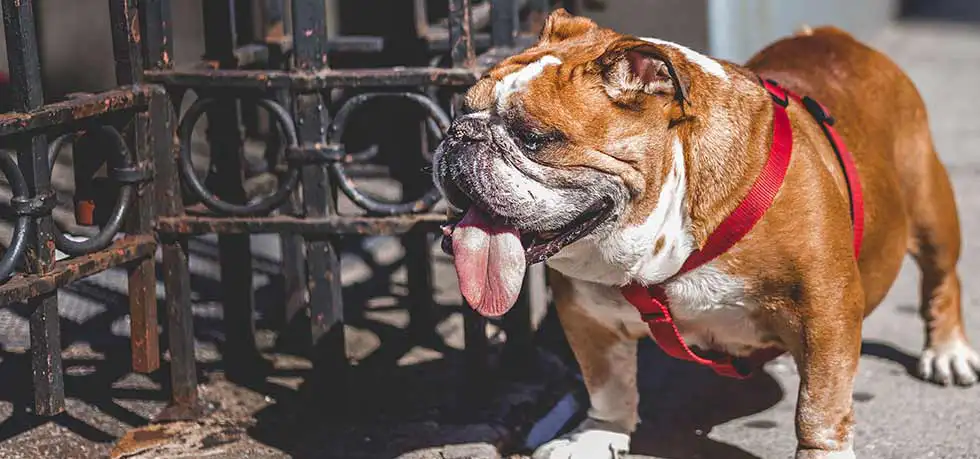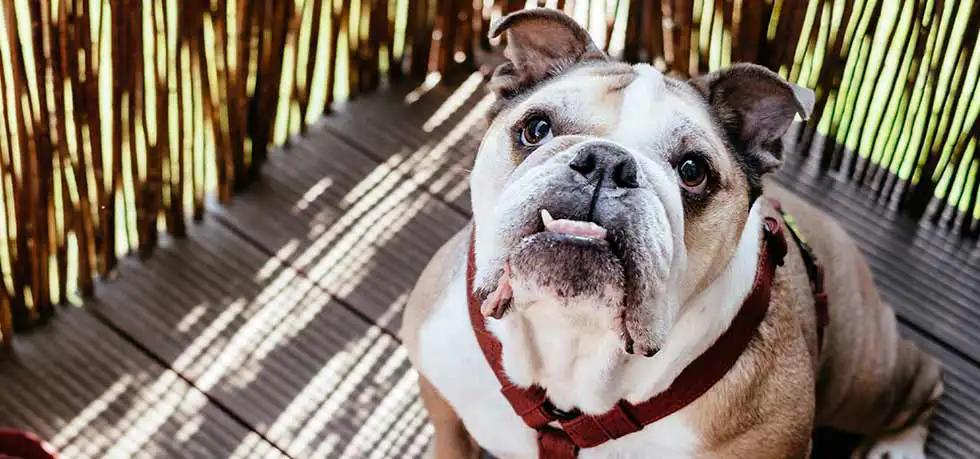Bulldog Playtime Favorites: Chew, Play, Repeat - Top Toy Picks for Your English Bulldog's Entertainment
Bulldog Playtime, featuring Durable Toys and Interactive Entertainment, is crucial for your…
Bulldog Playtime, featuring Durable Toys and Interactive Entertainment, is crucial for your…
Bulldog Toy Durability, Chew-Resistant Materials, and Engaging Playtime are crucial when selecting&h…
Bulldog Chewing Behavior, coupled with Effective Training and the use of Safe…
Bulldog Temperament, combined with their Child-Friendly Nature and capacity for Safe Interaction,&he…
Bulldog Agility, Athletic Capabilities, and advanced Training Techniques often go unnoticed, oversha…
Bulldog Snoring, unique Sleep Patterns, and the need for Comfortable Bedding are…
Hello to all Dog Lovers out there! Welcome to your reliable and dependable source of information on the English bulldog breed. These sweet and lovely doggies are usually low-endurance, predictable, and outgoing companion dogs. What is more, these bulldogs are also great with children! If you have ever wondered about getting an English bulldog, here you will find all the information you need about the breed.
Get to know the breed of English bulldog better by familiarizing yourself with the basics. Here is all the main information needed to better understand what you can expect from these dogs.
| Male | Female | ||
|---|---|---|---|
| Size | Approximate Weight Approx. height at withers | 54 lbs. 17 in. | 50 lbs. 16 in. |
| Features | Brachycephalic short face, heavy wrinkles, thick neck, large paws | |
| Expectations | Daily exercise span Energy levels Longevity Drooling tendencies Snore Barking tendencies Digging tendencies Social requirements | From 20 to 40 minutes Laid back From 8 to 10 years High High Low Low Moderate |
| Coat | Length Characteristics Main colors Coat grooming requirements | Short Straight, subtle Brindle, piebald, white, solid red, fawn Low |
| Club Recognition | AKC Classification UKC Classification Prevalence | Non-sporting Companion Dog Common |

If you have ever encountered an English bulldog, you would agree that these dogs are very friendly, calm, and loving. However, its origins, dating back to 18th-century England, could suggest a whole different approach.
But first, we need to start with the bulldog itself. This breed is actually related to the mastiffs, from which they separated around 1100 years ago. Throughout centuries many of them have been used in ill practices. These included blood sports of baiting and dog fighting.
However, the modern English bulldog is more of a companion dog. Due to its calm and outgoing nature, this dog could even be kept around children.
This breed was created in England at the beginning of the 18th century, and as a result of crossbreeding. It was dissimilar to the Old English bulldog both in appearance and its tasks.
Around the mid-1800s the dog’s silhouette changed significantly, becoming more similar to the modern pattern. It became taller, wider, more massive, and with a larger head. What the breed kept was its short muzzle and ears placed back.

The English bulldog’s head is huge and spherical, with an exceptionally short snout that gives the face a flattened look. Its eyes are black and positioned low and broad on the frontal plane of the forehead.
The nose is black with a little upturn, while the jaws are massive, wide, and undershot. The lower jaw protrudes in front of the upper jaw, just exposing the bottom incisors, resulting in a goofy grin. Lips that are plump and pendulous. The cheeks are rounded and extend to the side. The ears are tiny and narrow, angled forward like flaps framing the forehead.
Overall, these dogs are of medium size, weighing around 50-54 lbs. and growing as high as 16-17 in.
An important feature is the dog’s skull shape. It can produce tremendous respiratory problems, which the owners have to be careful about. The air passage is more difficult due to a soft and elongated palate. This results in their panting breath, as well as being prone to snoring and having droopy eyes.
English Bulldogs basically eat what non-hunting beagles eat. The basis of the bulldog's diet is meat (up to 50%). In addition, you can mix different plant-based ingredients, including root and green vegetables, with a small amount of filler.
Remember! This breed is prone to food allergies, therefore keep their diet free of any allergens.
How can you determine the allergens unsafe for your bulldog? Simply by creating an elimination diet, which is based on a trial and error method. For example, if you expect chicken to be the main problem, replace it with beef, venison, lamb, fish, etc.
If your English bulldog does not tolerate grains, the filler can be cooked potatoes. Moreover, instead of salmon oil or cod liver oil, cold-pressed (unrefined) rapeseed oil can be added to the food.
You should observe any signs of allergy, which are usually similar to the symptoms of atopic dermatitis: inflammation of the ears, lips, pads, and itchy hives.
Buying the perfect collar and leash can be a demanding challenge. However, there are a few important tips to consider that will help you choose the best products for your dog.
When it comes to a collar for English bulldogs, they can serve multiple purposes. Using one will let you identify your dog if it might get lost. Moreover, a collar ensures safety during walks since you can attach a leash to it.
The best English bulldog collars should distribute the pressure around the dog’s neck evenly. Selecting one, you should also check how this collar fits with the harness and leash you want to purchase.
Buying a leash for your English bulldog is equally important as you will use it during your daily walks. Therefore, you will require a safe and comfortable leash that serves its purpose right. There are many different types, including adjustable, retractable, hand-free, and even bike leashes. Hence, making a spot-on decision should mainly depend on your personal requirements and expectations.
English Bulldogs are chunky dogs, which can weigh up to 55 pounds. This weight compresses their small legs, predisposing them to orthopedic disorders. By cushioning its joints when it sleeps, the best dog bed for English bulldogs can help lessen this danger. Unlike other dog beds, English Bulldog beds distribute pressure points to relieve joint discomfort. It also allows your dog to properly relax.
Choosing the ideal bed can also reduce your bulldog’s night crying. Yes, these gods are notorious for such behavior, which happens due to their separation anxiety or feeling uncomfortable. Hence, a cozy bed can be equally important for your bulldog’s physical and mental well-being.
It is also a good idea to invest a bit more in the perfect bed for your English bulldog. A professional orthopedic bed can ensure additional safety, reduce orthopedic issues, as well as preventing behavioral problems.
Now that you know a bit more about the breed, it is time to answer the most important question. What makes an English bulldog a good option for your companion dog?
Let us present the most important 7 benefits of owning a bulldog:
The English bulldog is an adorable dog and the ideal choice for all bulldog lovers. We recommend reading our blog articles on subjects related to the raising and caretaking of these dogs. Feel free to browse our website and discover more facts about English bulldogs!
It's important to introduce your Bulldog to your home slowly and patiently. Give them time to explore their new environment and acclimate.
It's important to socialize your Bulldog from a young age so they feel comfortable and secure in different situations. Expose them to different people, places, and sounds.
The key is consistency and positive reinforcement. Take them outside regularly, especially after eating and drinking, and praise them when they do their business outside.
Bulldog are known to bite and chew on things, so it's important to provide them with suitable toys and supervise them closely.
Separation anxiety is common in Bulldog, so it's important to gradually get them used to being alone. Provide toys and keep a consistent routine.
Bulldog need a comfortable and appropriately sized bed. Look for beds that provide good support and are made of durable materials.
The amount of food a Bulldog needs depends on their age, weight, and activity level. It's important to follow the manufacturer's food instructions and work with your veterinarian to determine the appropriate amount.
It's important to teach your Bulldog to walk on a leash from a young age. Use positive reinforcement techniques and be patient.
Obesity is common in Bulldog, so it's important to control their diet and ensure they get enough exercise.
Bulldog English's facial wrinkles can accumulate dirt and moisture, so it's important to clean them regularly with wet wipes or special cleaning solutions.